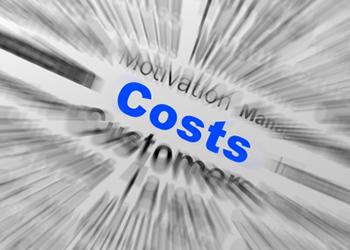Discover seven fundamental accounting principles you can use to organize and grow your business.
While starting a small business can come with all sorts of challenges, one of the most imposing obstacles is figuring out how to manage your accounting. While this process could take weeks to fully understand, here are some useful tips to get you started.
Make Sure the Paperwork is Correct
As you might assume, there is a lot of paperwork behind accounting. And while it’s easier said than done, making sure this paperwork is correct and in order is the most important thing a business owner can do to ensure that their accounts run smoothly.
This includes keeping receipts of any transactions made – that doesn’t just mean transactions between you and your customers, but also you and anyone you’re buying from, as all the money is going into and coming out of the same pot. Another important aspect is ensuring your employees’ paperwork is all in good order, for example by making and banking information is correct.
Keep Your Taxes in Mind
One of the most important aspects of running a business is making sure that you’re on good terms with the IRS. The IRS is considered to be one of the most brutal government agencies, and if they think you’re holding back on what you owe, they will never stop hunting you down!
That is why you need to make sure your taxes are nice and straight when managing your books. Taxes usually come last when you’re assessing your numbers – since the final amount you owe will have to be calculated based on your income, number of employees, etc. – so don’t get too excited about your monthly profits before figuring out how much goes to Uncle Sam.
If you’d like more information on your state’s tax code,
there’s a lot of information here.
Consult a Professional, Even Just Once
As mentioned above, it takes a lot of work to fully understand accounting. That’s why accountants exist, dedicating their entire professions to managing and understanding a business’s finances. So if you’re not sure about a certain process, it can be a good idea to consult an accountant about your business’s bookkeeping.
While you can
hire an accountant full time, this could be a significant expense for a small business, and you don’t have to do this if you think you have a solid grasp of your accounting. But no matter how confident you are in your understanding, it can be worth meeting with a professional accountant, even just once, and have them assess your process and make sure you’re doing it all correctly. Who knows, they might even have a way to save you some money!
Keep Tabs on Outstanding Payments
Hopefully you’ll have a lot of customers who are interested in your goods and services, and a lot of incoming orders. While this is the goal of any business, it does mean that there can also be a lot “up in the air” at any given time, in regard to who owes who.
And while morality would tell us that anyone who owes a payment will eventually get around to paying it, it’s certainly practical to make sure you have a record of who owes you money. This isn’t just so you can hunt them down – it also means you won’t overpay on taxes, as a service offered in one tax period but paid for in another can become slightly more annoying to handle. It’s not the end of the world if you are paid later than expected, but you could consider offering early payment discounts to make sure that you’re paid on time.
Check Everything Twice
As simple as this tip may sound, it's crucial to make sure that all your numbers make sense before doing things like sending in your taxes or sending out payment to your employees.
As we said, making sure your taxes are all above board is essential for your business, but that’s obviously not the only thing you’ll want to double (or even triple) check. Making sure your
employees are paid correctly, keeping track of all of your inventory; these are matters where a stray decimal point could cause some real mayhem, so carefully reading over your records is an essential step.
Use Accounting Software
A lot of the steps above can be circumvented by the use of accounting software. For example, if you were using a simple Excel spreadsheet to keep track of your expenses, a small mistake would likely not be picked up. But accounting software will notice a discrepancy and alert you of the issue.
That’s not all it can do, either. Managing taxes, keeping track of outstanding payments, maintaining strict records of expenses and inventory all the way back to the business’s beginning – these are all benefits of accounting software that can make a business owner’s life a lot easier.
Keep Your Ear to the Ground Regarding Accounting Changes
Accounting might seem like a field that is very stagnant. A lot of accounting can be boiled down to mathematics and government forms, both of which don’t change wildly week after week. However, there are still
developments within the world of accounting that you’ll want to be aware of.
Duncan Lambden







